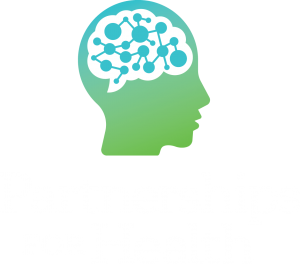When people learn that I am an occupational therapist and dementia care specialist, they often chuckle and say, “If I’m losing my mind, don’t tell me—I don’t want to know!” I can relate to their wishful thinking that, should I develop dementia, I’d prefer to be pleasantly confused without fretting or upsetting my loved ones. After all, until a cure or disease-modifying treatments exist, what would I do about my changing brain health anyway?
The short answer is there’s a lot that you can do to maintain your brain health at any age. Detecting a problem early could lead to a quick resolution, restore brainpower, or maintain brain function longer—all for the sake of living life to the fullest through old age.
The Challenge
The myth that we’re powerless in our own brain health gives rise to a challenge nationwide: early signs of cognitive decline go undetected, and therefore, older adults miss out on beneficial treatments that work best when started early.
Even the earliest stage of cognitive decline can make participating in health-supporting activities, enacting life roles, and maintaining important relationships more challenging. Declining brain function could make life unnecessarily difficult for the person and their myriad caregivers—while effective and relatively easy treatments go untapped.
Today, let’s bust that myth that there’s nothing we can do to maintain our own brains—and spread the message that detecting and intervening early when cognitive problems are suspected can lead to better outcomes for older adults and their families.
Gathering Information
So, why the push to uncover early signs of memory and thinking problems?
Possibly the most convincing reason is that there are many conditions that look like dementia but are not—conditions that have relatively easy treatments. For instance,
Vitamin B12 Deficiency: Imagine a woman’s delight when she learned that her recent “brain fog” and trouble remembering was due to a B12 vitamin deficiency (1). She said, “When my doctor explained that a few simple dietary changes along with a daily B12 supplement would resolve the problem, my worry instantly lifted!”
Drug-Induced Delirium: Another family was relieved when they learned that their loved one’s memory loss, confusion, and agitation were due to a medication interaction, not dementia. The gentleman was experiencing a reversible condition called “drug-induced delirium” (2), and because the family recognized early signs, the man received immediate help. In partnership with the doctor and pharmacist, the family adjusted the gentleman’s medications and reduced the overall number of medicines. To everyone’s relief, life returned to normal for the gentleman and his family.
Mild Cognitive Impairment: Another condition often mistaken for dementia is Mild Cognitive Impairment (MCI). (3) MCI describes a slight but noticeable decline in memory and thinking skills beyond what appears with normal aging. However, MCI is not severe enough to be diagnosed as dementia.
There are two main types of MCI:
- For some folks, MCI primarily affects their memory (amnestic MCI). The person may forget important information, appointments, or recent events, which they would usually recall easily.
- For others, MCI primarily affects thinking skills other than memory (nonamnestic MCI). In this case, the person may have trouble making decisions or organizing the steps of a complex task. Or they may misinterpret what they see visually.
While people living with MCI (especially the amnestic type) are more likely to develop dementia, MCI does not always lead to dementia. One systematic review found that 32% of persons with MCI develop dementia over five years. On the other hand, studies have shown that between 10% to 40% of people with MCI return to normal cognition within five years. For others, MCI may remain stable. (4)
For all these reasons, I routinely encourage audiences, especially older adults, to speak to their doctor about ways of monitoring and maintaining their own brain health—before a problem develops. Individuals of all ages, with support from healthcare providers, can treat conditions like high blood pressure, depression, or sleep apnea to help improve memory and overall mental function. People diagnosed with MCI should be reevaluated every six months to determine if symptoms have progressed. (4)
Success Stories
One couple reached out to me after one of my presentations to share how they were applying their new knowledge and skills in their personal life. After learning about various conditions commonly mistaken for dementia (5), they decided to take matters into their own hands. The couple believed a more pro-active approach to maintaining and monitoring their own brain health would help them detect any problem early (both were healthy but had a family history of dementia) and maximize current brain function for each. My favorite part: they decided to tackle their shared goals together. The couple’s plan included the following:
- Brain Check-Ups: The couple scheduled a “healthy brain checkup”with their doctor using the St. Louis University Mental Status Exam (6) as it’s the best test at detecting mild cognitive problems. (7)
- Diet: The couple is incorporating more brain-boosting foods in their diet (8).
- Exercise: Aware of research connecting physical (9) and mental exercise (10) to better brain health, the couple registered for a group dance class, and they are enjoying learning together.
- Caring Conversations: The couple held meaningful talks with family to make their wishes known and spoke openly about how each person wanted their care to be handled if he/she ever developed dementia. (11)
Connecting the Dots in Your Situation
- Have you recorded a baseline brain assessment with your doctor and made a plan for routine checkups?
- Do you have at least one new idea to maintain your own brain health? Are there any additional strategies, from your own experience, to share with us?
- Caregivers, how might you use this information to support the older adults in your life, whether loved ones or clients?
Additional Resources if You’d Like to Learn More
(1) “Vitamin B-12 Deficiency Can Be Sneaky, Harmful” https://www.health.harvard.edu/blog/vitamin-b12-deficiency-can-be-sneaky-harmful-201301105780
(2) “An Approach to Drug-Induced Delirium in the Elderly” https://pmj.bmj.com/content/80/945/388
(3) “Mild Cognitive Impairment” https://www.alz.org/alzheimers-dementia/what-is-dementia/related_conditions/mild-cognitive-impairment
(4) “Screening for Cognitive Impairment in Older Adults: US Preventive Services Task Force Recommendation Statement” https://jamanetwork.com/journals/jama/fullarticle/2761651?guestAccessKey=c0c00d75-43d8-4865-b512-b92917ed8c73&utm
(5) “Dementia-Like Symptoms: What Else Could It Be?” https://www.scie.org.uk/dementia/symptoms/diagnosis/what-else.asp
(6) “St. Louis Mental Status Exam” https://www.slu.edu/medicine/internal-medicine/geriatric-medicine/aging-successfully/assessment-tools/mental-status-exam.php
(7) “St. Louis Mental Status (SLUMS) Examination for Dementia” https://www.verywellhealth.com/the-saint-louis-university-mental-status-examination-98618
(8) “11 Tasty Foods That Reduce Alzheimer’s and Dementia Risk” https://www.verywellhealth.com/foods-that-reduce-dementia-risk-98464
(9) Khalsa, D.S., Perry, G. (2017) The Four Pillars of Alzheimer’s Prevention. Cerebrum.
(10) Park, D. C., Lodi- Smith, J., Drew, L., et al. (2014). The impact of sustained engagement on cognitive function in older adults: the Synapse Project. Psychol Sci.25(1):103-12. doi:10.1177/0956797613499592(11) “7 Ways to Prepare for Alzheimer’s” https://www.everydayhealth.com/senior-health/alzheimers-disease/7-ways-prepare-alzheimers-disease/
(11) “7 Ways to Prepare for Alzheimer’s” https://www.everydayhealth.com/senior-health/alzheimers-disease/7-ways-prepare-alzheimers-disease/


Leave a Reply